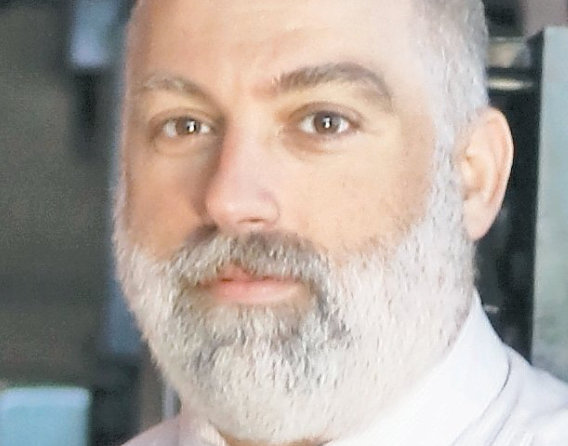A love and a smile beyond dementia
I’ll never forget the last time I saw my stepmother, even though by then she’d already forgotten me.
It was last year in the Florida hospice center Helen had lived in since before the coronavirus pandemic, when she required round-the-clock care that my father — back then pushing 90 himself — could no longer provide.
At first it was a missed meal, a forgotten hair appointment. But then Helen would forget to take her insulin. At that point we could no longer call it absentmindedness and blame it on all the medication she took. Dementia was taking its grip on Helen, and it was a battle none of us had any chance of winning.
Watching my stepmother fade was just cruel, for all of us. Helen still had that beautiful smile. She would still look at you with wonder. And she had a laugh that would echo through your mind for hours after you heard it. But the Helen we all knew and loved was no longer inside. It broke all of our hearts.
Helen was hardly alone. Nearly 6 million people in the United States suffer from Alzheimer’s disease or some other form of dementia, according to the Centers for Disease Control and Prevention — nearly all of them 65 and older. That number will only grow, with an estimated 14 million expected to become victims of this condition by 2050, when I’ll be in my 70s myself.
Almost all of us have been touched by dementia in our families or our circle of friends. And there really is nothing we can do except always have a smile in front of them, make sure all their needs are met, and do our best to show how much we love them.
Early in Helen’s decline, we had picked up my younger sister from the airport. My dad’s van had a space up front for Helen’s wheelchair, because she always insisted on being by his side.
“How is Karel doing in medical school?” my stepmother asked me, referring to my partner at the time.
“He’s fantastic,” I told her. “He’ll be a doctor before we know it.”
We moved on to other family happenings, but then, out of nowhere, Helen spoke up again.
“How is Karel doing in medical school?”
My sister looked over at me, a bit panicked about how I should react. But I didn’t miss a beat.
“He’s fantastic,” I told her. “He’ll be a doctor before we know it.”
Later, my sister said she was blown away by how I handled the repeat question. It had happened a few more times with different topics, but each time Helen received calm answers, as if she had asked only once.
“If we get frustrated with her, she’ll get confused and upset, because she doesn’t know why we’re frustrated,” I told my sister. “All we can do is roll with it.”
And that’s all we can do. We just have to roll with it, despite how much it hurts to lose someone right before your eyes.
Which takes me back to that last visit at hospice. My dad was smiling at Helen, who at that point was barely verbal. He held her hands in his, talking about church. Talking about how beautifully they made up her hair. Through all of it, she just looked at my dad, occasionally letting out a laugh.
And then my dad paused, tears welling up in his eyes, but he refused to take that smile off his face.
“I love you,” he said to her.
Helen looked at him for a moment, struggling to get the words out. But she did, even if they were slurred a bit.
“I love you, too.”
Helen Wood Hinman died on Nov. 1, just two months shy of her 95th birthday. Although many of us had said our goodbyes to her long ago, her passing was still difficult.
I share the Helen of later years here with you because talking about dementia is important. But I choose to remember the Helen before the dementia. Who came into my father’s life during one of his darkest periods, and shared a love most of us could only imagine.
A love so deep, not even the cruelest of diseases could conquer it.
Michael Hinman is executive editor of Herald Community Newspapers. Comments? mhinman@liherald.com.

 60.0°,
Mostly Cloudy
60.0°,
Mostly Cloudy 




